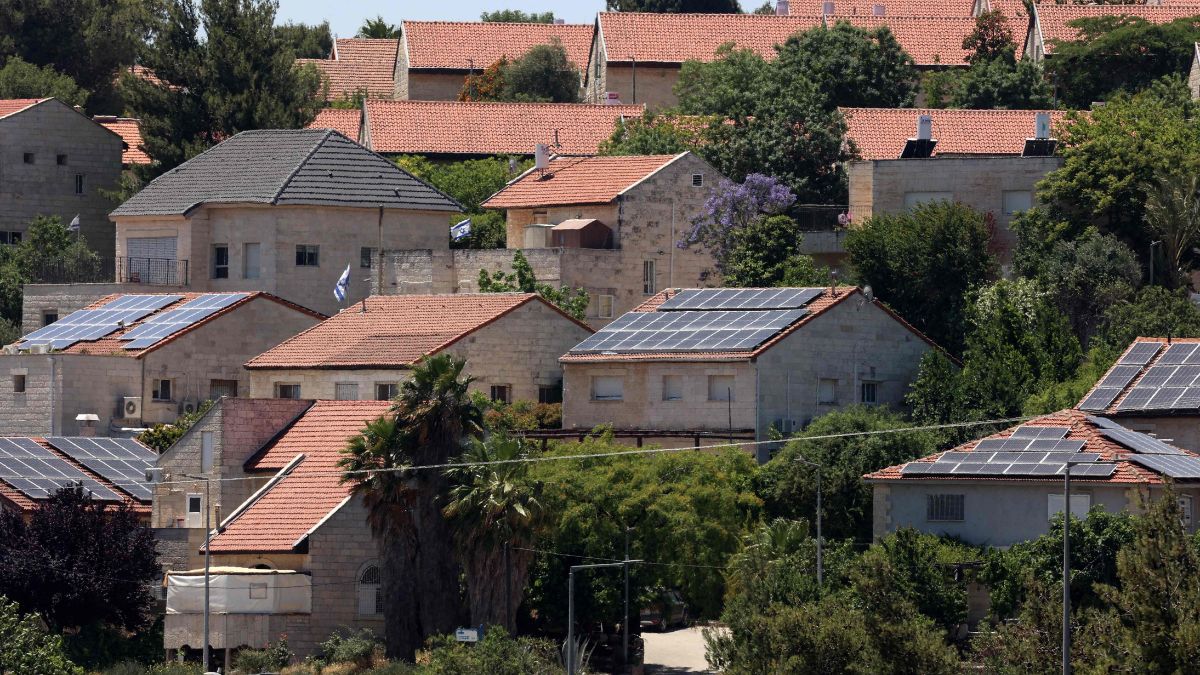Death knell for independent Palestine? Israel approves 22 new West Bank Settlements in secret cabinet vote
 A Israeli settlement of Psagot in the occupied West Bank, located on Tawil hill adjacent to the Palestinian cities of Ramallah and al-Bireh | AFP
A Israeli settlement of Psagot in the occupied West Bank, located on Tawil hill adjacent to the Palestinian cities of Ramallah and al-Bireh | AFP
Israel has approved the establishment of 22 new settlements in the West Bank, including the legalisation of unauthorised outposts, following a security cabinet vote held in secret last week. The announcement was confirmed by Defence Minister Israel Katz and Finance Minister Bezalel Smotrich, both of whom said the move was necessary to strengthen Israeli presence in the area.
Some of the settlements already exist as outposts built without prior government approval and will now be legalised under Israeli law. Others are entirely new, with construction reportedly underway in locations such as Mount Ebal near Nablus and Beit Horon North, west of Ramallah.
The West Bank has been under Israeli control since the 1967 Six-Day War, when Israel captured the territory from Jordan. The United Nations classifies it as occupied territory and considers Israeli settlements there to be in violation of international law. Article 49 of the Fourth Geneva Convention states that an occupying power should not transfer parts of its own civilian population into the territory it occupies.
Israel, however, disputes the characterisation of the West Bank as occupied and refers to it by its biblical names, Judea and Samaria. Israeli authorities administer large portions of the area directly, while parts are governed by the Palestinian Authority. According to Israeli law, the new settlements are being established within the framework of state planning.
As of December 2024, approximately 5.3 lakh Israeli settlers lived across 141 officially recognised settlements in the West Bank. The Palestinian population in the territory is estimated at around 33 lakh, many of whom live in areas where movement is restricted by a network of Israeli checkpoints.
Katz said the government’s decision “anchors our historical right in the Land of Israel” and “prevents the establishment of a Palestinian state that would endanger Israel”. Smotrich, a long-time advocate for settlement expansion who resides in the West Bank, described the move as “strategic”.
Among the sites included in the expansion are Homesh and Sa-Nur, settlements deep in the northern West Bank that were evacuated in 2005 during Israel’s withdrawal from Gaza. In recent years, settler groups have re-established a presence at Homesh, including a religious school, which will now receive legal recognition.
Nine of the settlements are entirely new, according to the Israeli advocacy group Peace Now. It also noted that Nofei Prat, which was previously classified as a neighbourhood of Kfar Adumim near East Jerusalem, will now be recognised as a separate settlement.
The new settlements are expected to consolidate Israel’s control of key infrastructure corridors. Route 443, a major highway connecting Jerusalem to Tel Aviv via Modiin, has been cited as a strategic focus area. The head of the Yesha Council, which represents Jewish municipalities in the West Bank, called the decision “the most important since 1967”.
The announcement follows a series of land appropriations over the past year. In July 2024, the Israeli government approved the largest seizure of land in the West Bank in over three decades, taking control of nearly 13 square kilometres in the Jordan Valley. Peace Now described it as the largest such move since the 1993 Oslo Accords.
In a leaked recording from a 2024 political conference, Smotrich claimed land confiscations had increased tenfold compared to previous years, calling the effort “mega-strategic”. In May 2023, he directed government ministries to prepare for the settlement of an additional five lakh Israelis in the West Bank.
Further administrative changes were made in May 2024, when the Israel Defence Forces transferred authority over dozens of civil bylaws to civilian officials reporting to Smotrich. The move, posted on the IDF website, shifted planning and zoning powers to the Defence Ministry's West Bank division.
According to Peace Now, over 10,500 housing units were advanced in the West Bank between January and March 2025, exceeding the number approved in the entirety of 2024.
Critics argue that the expansion undermines prospects for a two-state solution. The Palestinian Authority condemned the decision as a “dangerous escalation” that could deepen instability. A spokesperson for President Mahmoud Abbas accused Israel of attempting to prevent the establishment of an independent Palestinian state.
The Jordanian Foreign Ministry also issued a statement calling the move “a flagrant violation of international law and international humanitarian law”.
Several observers suggest the expansion reflects a broader policy shift. Lior Amihai, director of Peace Now, said: “The Israeli government no longer pretends otherwise. The annexation of the occupied territories and expansion of settlements is its central goal.”
Israeli journalist Elisha Ben Kimon observed on the BBC that a significant majority of Israeli ministers now supported formal annexation of the West Bank. “They believe this period will never be coming back. This is one opportunity they don’t want to slip from their hands.”
Middle East